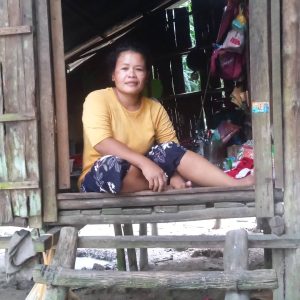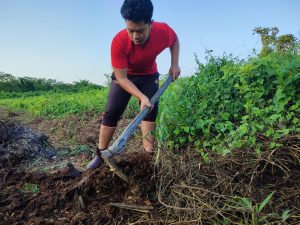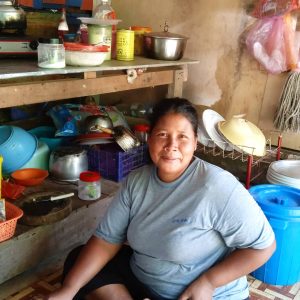Healthcare in Melai has witnessed significant improvement thanks to the introduction of a mobile clinic service operated by Jabatan Kemajuan Orang Asli (JAKOA) and the Ministry of Health (MOH), according to Amai Maimun, 51.
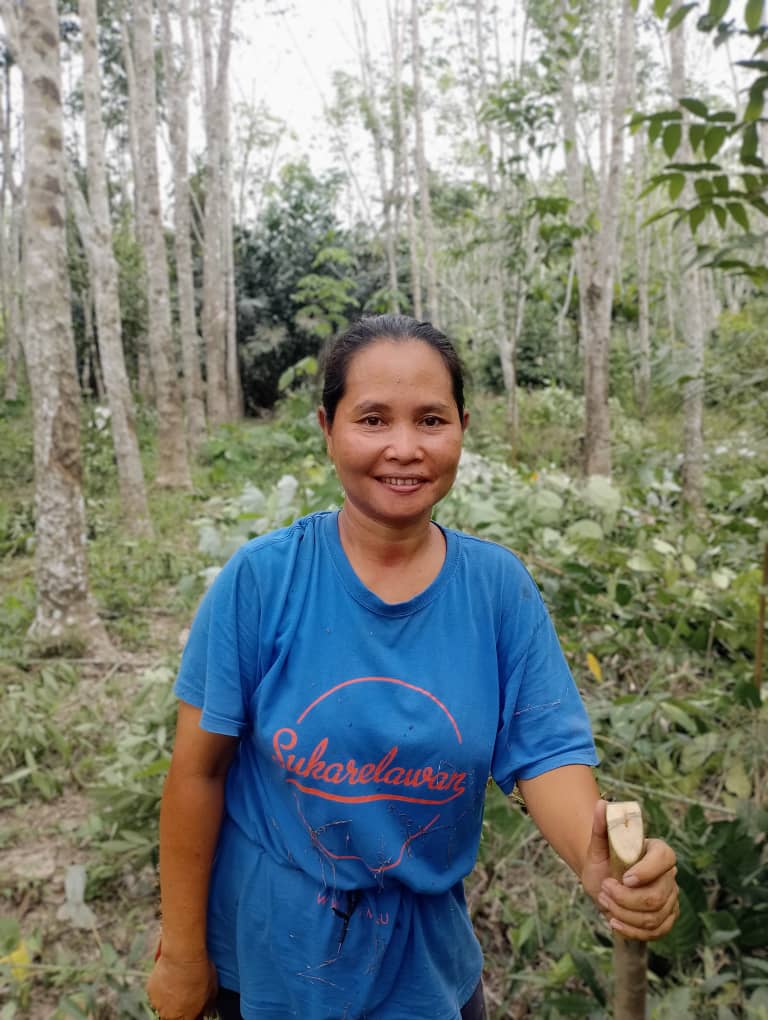
In the past, Melai residents relied on the Klinik Kesihatan in Chini, which was a 20-minute motorcycle ride from the village. In cases of more serious medical conditions, they had to endure a 2-hour journey to reach the general hospital in Pekan. Fortunately, the road infrastructure allowed for ambulance access to the village in emergencies.
The advent of the mobile clinic has substantially enhanced the healthcare landscape for villagers, bringing medical services closer to them and enabling more frequent and accessible medical check-ups.
For the annual medical check-up, some individuals visit a nearby clinic on their own, while others await the monthly check-up conducted by the service clinics in the village. – Amai Maimun
In recent years, the health and well-being of the Orang Asli community have received commendable attention. Previously, concerns about malnutrition and stunting took precedence[1]. However, with the increasing modernisation influencing the lifestyles of many Orang Asli communities, the health scenario is evolving.
Immunisation Successes in Melai
In Malaysia, the government mandates childhood immunisations to safeguard children against 13 major diseases, and these vaccinations are provided free of charge at government facilities.
According to Amai Maimun, most school-going children in Melai have received necessary immunisations. She also said that her children received their BCG shots in school.
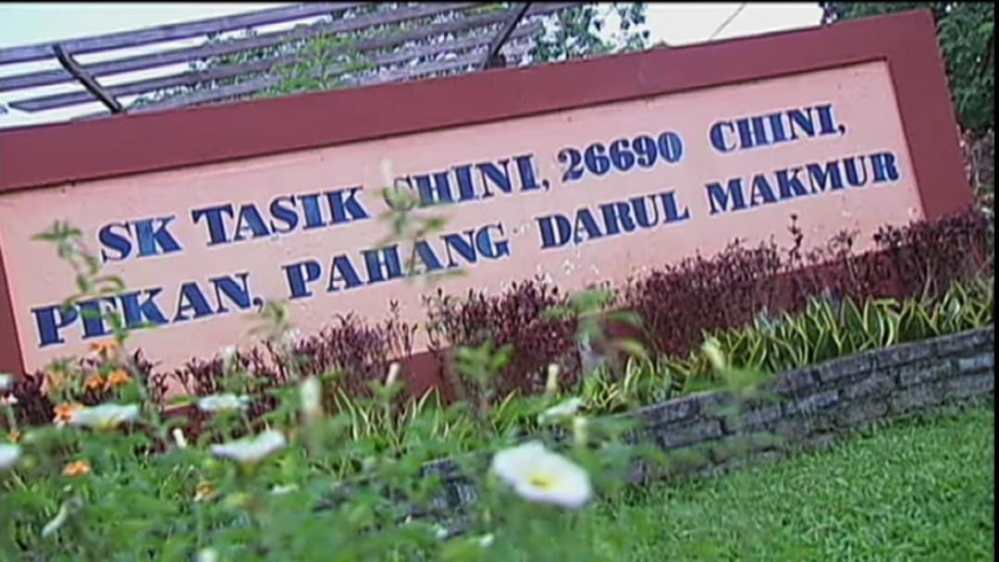
The good news is that approximately 8 out of 10 children in Melai have received their childhood vaccinations.
However, despite these encouraging developments – the Orang Asli community as a whole still has lower immunisation rates of 75-83%[1] compared to the national rate is between 94% and 98%[2].
OA Eating Habits A Plus To Their Health
One of the consequences of modernisation is the shift in lifestyle patterns, despite the Orang Asli (OA) community maintaining a lower prevalence of obesity than the national level at 30.4%[3].
The community’s focus on farming and foraging forest resources has contributed to their overall physical activity and well-being. However, those communities exposed to more urban influences have faced an increased risk of overweight issues due to higher consumption of processed foods and reduced physical activity.
These changes in dietary habits have made them susceptible, like others, to non-communicable diseases such as diabetes and high blood pressure, with studies indicating an increasing prevalence in OA communities.
In the unique context of Melai, the primary health concerns for the community revolve around flu and cough, with serious diseases being rare among the villagers.
Both the elderly and the young usually suffer from flu and cough – not so much serious diseases. – Amai Maimun
Remarkably, Melai has managed to preserve its traditional dietary practices. Many actively participate in the community’s vegetable garden, cultivating leafy greens and harvesting nutritious fruits.
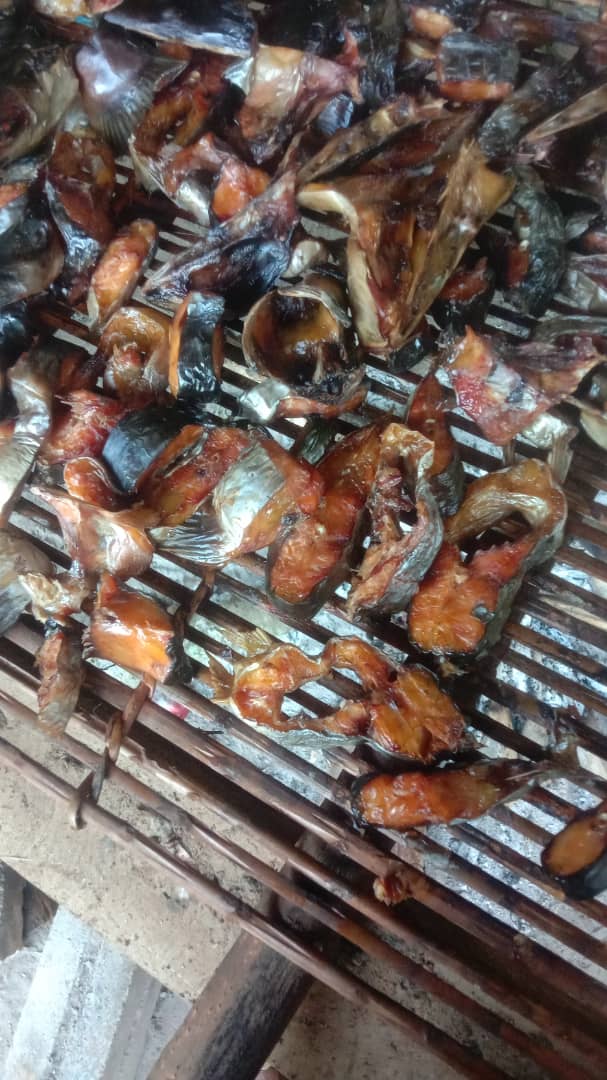
Notably, elders like Pak Linggi not only follow but also pass on invaluable knowledge to the younger generation, emphasising the benefits of food preservation techniques such as smoking meat—a secret contributing to their sustained good health.
Smoked food is good for health because it does not contain any harmful ingredients or chemicals. Only embers are used, and the slow fire’s heat effectively dries the meat, ensuring its nutritional quality. – Pak Linggi
Perks Of Having Proper Sanitation
In 2020, a staggering 53% of Orang Asli communities lacked access to piped water[4]. Furthermore, certain communities emphasized the urgent requirement for adequate toilets and waste management facilities. The absence of proper sanitation has contributed to the widespread occurrence of soil-transmitted helminth (STH), a tropical disease that exhibits a higher prevalence among the Orang Asli community compared to the general population[3].

However, in Melai, a different narrative unfolds. The community has successfully avoided the grip of diseases like STH, thanks to the proactive steps taken by the Pekan health district office. The installation of proper toilets and the provision of clean running water throughout the village have played pivotal roles in safeguarding the health of Melai residents.
In Melai, all villagers have access to a clean water supply sourced naturally from the hill in the forest. – Amai Maimun
The positive health status of Melai villagers serves as a beacon of progress in the ongoing efforts to enhance healthcare for Orang Asli communities. Despite persistent challenges, collaborative initiatives involving JAKOA, local health facilities, and the district office have borne fruit in promoting the well-being of Melai residents. This success story reflects the power of concerted efforts in transforming the health landscape for marginalised communities.
SOURCES:
1. Amar-Singh HSS. (2008). Mortality, morbidity & Malnutrition In Orang Asli Children. Link
2. Tengku Muhammad Fakhruddin, T.M.F., Aminnuddin,M. & Shafei, M.N. (2023). Knowledge of the Malaysian National Immunisation Programme and its associated factors among parents in Dungun, Terengganu: A cross-sectional study. Link
3. Mahmud, M.H., Baharuddin, U.M., & Md Isa, Z. (2022). Diseases among Orang Asli community in Malaysia: a systematic review. BMC Public Health. Link
4. Metro News. (Sept 2020). Committed to bringing clean water to Orang Asli villages. The Star. Link.
